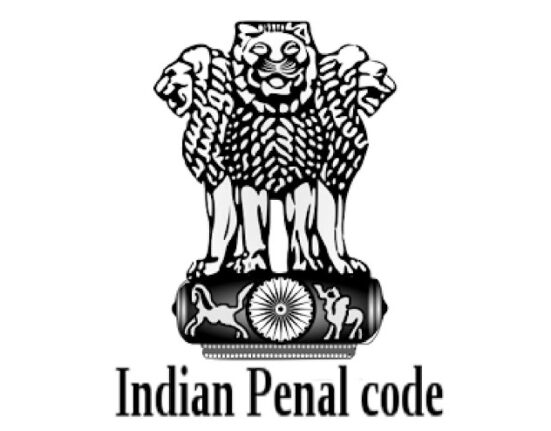Navtej Singh Johar vs Union of India: By Ishan Baranwal, student of BBA LLB, 4th Year, Sharda University, Greater Noida, Uttar Pradesh.
Navtej Singh Johar vs Union of India
Homosexuality – Section 377 IPC – Landmark Judgement
Full Case Name – Navtej Singh Johar and Ors. Versus Union of India. Secretary Ministry of Law and Justice
Citation(s) – W.P. (Crl.) No.- 76 of 2016;
Coram of Judges – HON’BLE THE CHIEF JUSTICE, HON’BLE MR. JUSTICE ROHINTON FALI NARIMAN, HON’BLE MR. JUSTICE A.M. KHANWILKAR, HON’BLE DR. JUSTICE D.Y. CHANDRACHUD, HON’BLE MS. JUSTICE INDU MALHOTRA.
Facts of the Case –
Section 377 of the IPC categorised consensual sexual intercourse between same sex people as an “unnatural offence” which is “against the order of nature”. It prescribed a punishment of 10 years imprisonment.
A writ petition was filed on 26th April 2016 by Navtej Singh Johar, a dancer from the LGBT (lesbian, gay, bisexual and transgender) community along with four others to challenge the constitutional validity of Section 377 of IPC which criminalises consensual sexual intercourse between same – sex adults in private.
In the prayer, the petitioners prayed for declaration of “right to sexuality”, “right to sexual autonomy” and “right to choice of a sexual partner” to be a part of right to life guaranteed by Article 21 of the Constitution of India. It was prayed by the petitioners to declare Section 377 of the Indian Penal Code as unconstitutional.
Procedural History: In July 2009, the Delhi High Court declared deemed portions of Section 377 unconstitutional in Naz Foundation v/s Government of NCT of Delhi.
In 2014, a two-judge bench of the Supreme Court, in the case of Suresh Kumar Koushal v/s Naz Foundation, overturned the Delhi High Court decision and granted Section 377 “the stamp of approval”.
When the petition in the present case was filed in 2016 challenging the 2014 decision, a three – judge bench of the Supreme Court opined that a larger bench must answer the issues raised, as a result, a five-judge bench heard the matter.
Issues – (Based on the facts court framed some issues.)
- Whether Section 377 of IPC violates Right to Equality under Article 14 of the Constitution?
- Whether Section 377 of IPC violates Freedom of Speech and Expression under Article 19 of the Constitution?
- Whether Section 377 of IPC violates Right to Life with dignity under Article 21 of the Constitution?
- Whether discrimination based on sexual orientation under Section 377 of IPC violates Article 15 of the Constitution?
- Whether the rationale adopted in the Suresh Koushal judgement was proper or not?
Contentions of the Parties –
Petitioner argued that
- Section 377 was a violative act of Article 14 of the Constitution (Right to Equality Before the Law) because it was vague in that it did not define “carnal intercourse against the order of nature”.
- Section 377 was violative of Article 15 of the Constitution (Protection from Discrimination) since it discriminated on the basis of the sex of a person’s sexual partner.
- Section 377 had a “chilling effect” on Article 19 (Freedom of Expression) since it denied the right to express one’s sexual identity through speech and choice of romantic/sexual partner.
- Section 377 violated the right to privacy as it subjected LGBT people to the fear that they would be humiliated or shunned because of “a certain choice or manner of living”.
Respondent argued that
- Section 377 of IPC does not violate Article 14 of the Constitution as it merely defines a particular offence and its punishment and it is well within the power of the State to determine who should be regarded as a class for the purpose of the legislation.
- Section 377 of IPC does not violate Article 15 of the Constitution as the said Article prohibits discrimination based on religion, race, sex, place of birth, caste and not specifically orientation.
- Some interveners argued the Petitioner, submitting that the right to privacy was not unbridled, that such acts were derogatory to the “constitutional concept of dignity”, that such acts would increase the prevalence of HIV /AIDS in society.
- The offence under Section 377 of IPC implies sexual perversity and involves Carnal intercourse between two persons which is offensive, injurious and against the order of nature; it is well within the jurisdiction of the state to put reasonable restrictions on it.
- Section 377 of IPC has been incorporated after taking note of the legal systems and principles which prevailed in ancient India and the said section is more relevant legally, medically, morally and constitutionally in the present situation.
- Decriminalization of Section 377 of IPC will shamble the family system and detrimentally affect the institution of marriage, open a floodgate of social issues which the legislative domain is not capable of accommodating and would also have a cascading effect on existing laws.
Held –
- On 6 September 2018, the court unanimously declared the law unconstitutional “in so far as it criminalises consensual sexual conduct between adults of the same sex”.
- The bench found that Section 377 discriminates against individuals based on their sexual orientation and gender identity, violating Article 14 and Article 15 of the Constitution. Further, they ruled that Section 377 violates the Rights to Life, Dignity and Autonomy of personal choice under Article 21.
- The verdict was hailed as a landmark decision for LGBT rights in India, with campaigners waiting outside the court cheering after the verdict was pronounced.
- Elements of Section 377 relating to sex with minors, non-consensual sexual acts such as rape, and bestially remain in force.
- Chief Justice Dipak Misra pronounced that the court found “Criminalising carnal intercourse” to be “irrational, arbitrary and manifestly unconstitutional”.
- The court ruled that LGBT people in India are entitled to all constitutional rights, including the liberties protected by the Constitution of India.
- It held that “the choice of whom to partner, the ability to find fulfilment in sexual intimacies and the right not to be subjected to discriminatory behaviour are intrinsic to the constitutional protection of sexual orientation”.
- The judgement also made note that LGBT community is entitled to equal citizenship and protection under law, without discrimination.
Cases Referred –
In order that inhibits an LGBT individual’s ability to fully realize their identity, by violating the right to freedom of expression under Article 19(1)(a).
They all referred to Court’s recent judgements in NALSA v/s Union of India (recognized transgender identity) and Justice K.S. Puttaswamy v/s Union of India (recognized fundamental right to privacy).
In Jason Jones v. Attorney General of Trinidad and Tobago, Claim No. CV 2017-00720, followed our judgment in Puttaswamy (supra) in order to strike down Section 13 of the Sexual Offences Act, 1986 on the ground that the State cannot criminalise sexual relations of the same sex between consenting adults.
![]()






Leave feedback about this